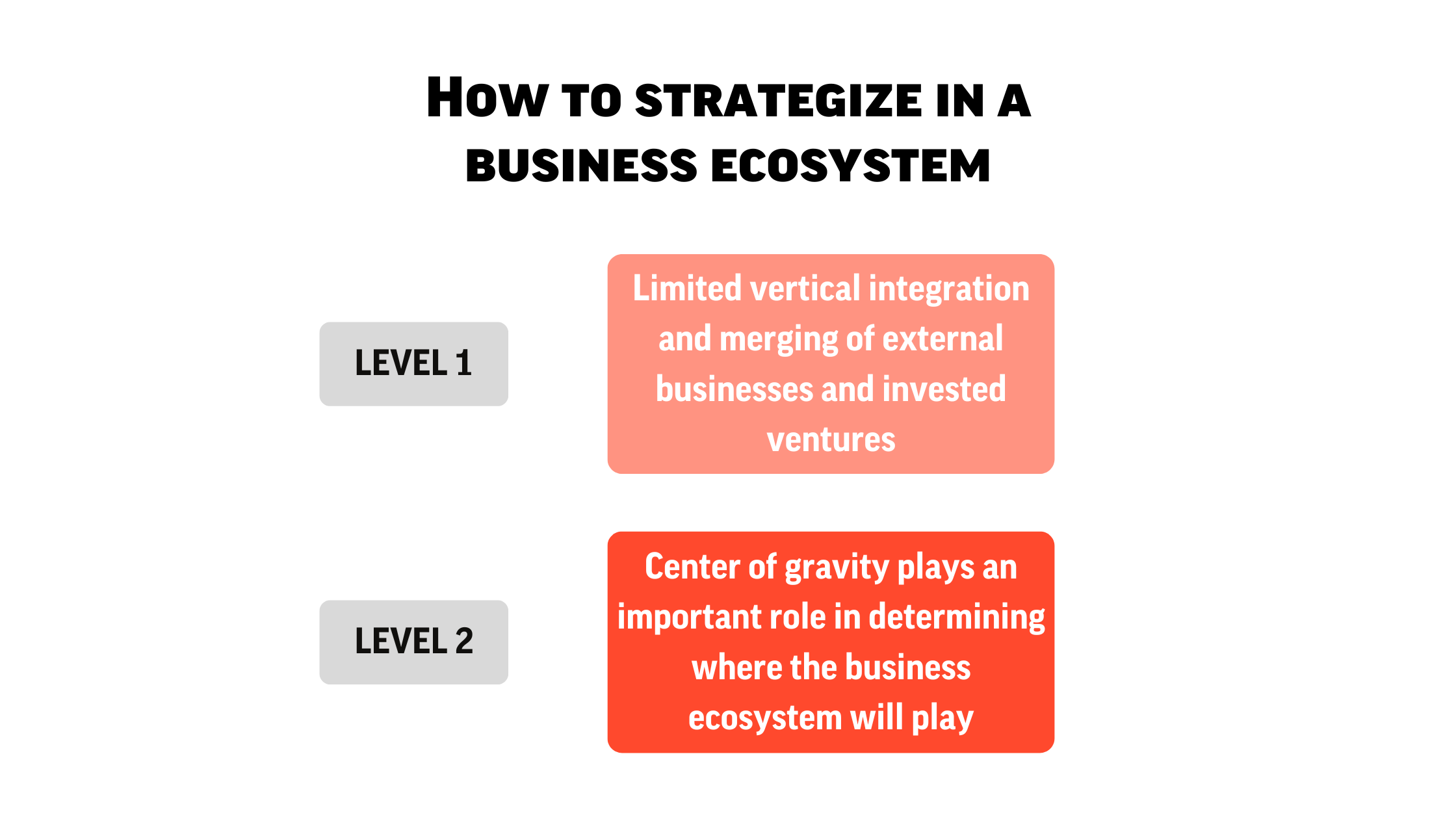The End of Strategy in Business Ecosystem? Quite the Opposite!

When Tom Peters, at the end of the 1970s, announced that we should move beyond the matrix organization to match accelerating business environments, he was a real visionary. It was not until much more recently that we hear about the death of competition by emerging ecosystems (James Moore), or how we should bust the bureaucracy for more agile ways of organizing (Gary Hamel), and why business ecosystems are going to make industry analysis obsolete (Michael Jacobides). It seems that there has finally been a consensus among strategy scholars that a new era demands a new way of organizing business.
Business ecosystems are an emerging approach to organizing. Rather than following strict strategic guidelines and deliberate design, these business ecosystems are managed by principles and routines and are never-ending reorganizations. Business ecosystems have clear advantages of speed, market responsiveness, and resilience in turbulent times. What, however, are the consequences of emergent organizations for strategy-making?
Cloud-Based Solutions for Strategy Implementation. Would you like to ensure your next strategy gets implemented?
A business ecosystem is an innovative way of organizing, not exclusively found in pioneering Silicon Valley giants. In fact, we find the best examples of business ecosystems at the other side of the world: China. It is the rapidly emerging Chinese business ecosystems such as Alibaba and Pingan that really draw attention.
Think about how Alibaba‘s business ecosystem is effectively managing over 2 million merchants across hundreds of businesses and dozens of industries. Alibaba has built a system that creates interdependencies between most of the businesses involved. Alibaba’s business ecosystem has become a data-driven, well-oiled machine of transactions and information; a “smart business,” as Zeng Ming termed it.
When you think of this rapidly evolving business ecosystem, it begs the questions “What is the strategy behind the business ecosystem? Is there actually a strategy behind all of this?”. One of the answers in recent thought leadership is that business ecosystem is not directed, but rather orchestrated.
Of course this makes a lot of sense: it would just not be possible for one management team, sitting at the core of an ecosystem of hundreds of companies, to know and understand what is going on across all these businesses. But how does strategy inform such orchestration, and how is strategy execution ensured? Having a common culture and a set of decision-making principles are vital elements; but when we look at Chinese business ecosystems, we might find an alternative answer.
There are two levels of strategizing in a business ecosystem. First, there is limited vertical integration and merging of external businesses and invested ventures. In fact, it’s clear that many Chinese business ecosystems deliberately leave the businesses running autonomously and independently as part of the business ecosystem. After all, e-commerce is rather different from digital healthcare, fintech or operating shopping malls. Strategy is deliberate, but bottom-up.
Second, a business ecosystem’s center of gravity plays an important role in determining where the business ecosystem will play. In particular, the fields an ecosystem plays in are by and large determined by the mechanisms that guarantee business interdependencies inside the business ecosystem. For example, in the case of Alibaba, potential new growth opportunities must connect to Alipay, AliCloud, or other shared services that connect Alibaba‘s business ecosystem. These business ecosystems balance the strategy-making of the individual businesses with the emergent strategizing of the overall ecosystem.
Rather than proclaiming the end of strategy as we know it, I would rather discover the mechanisms by which strategy is executed for both deliberate and emergent strategy. There’s no doubt that business ecosystems will pose a challenge to executive decision-makers: strategy is going to move away from the executive team to the business ecosystem.








